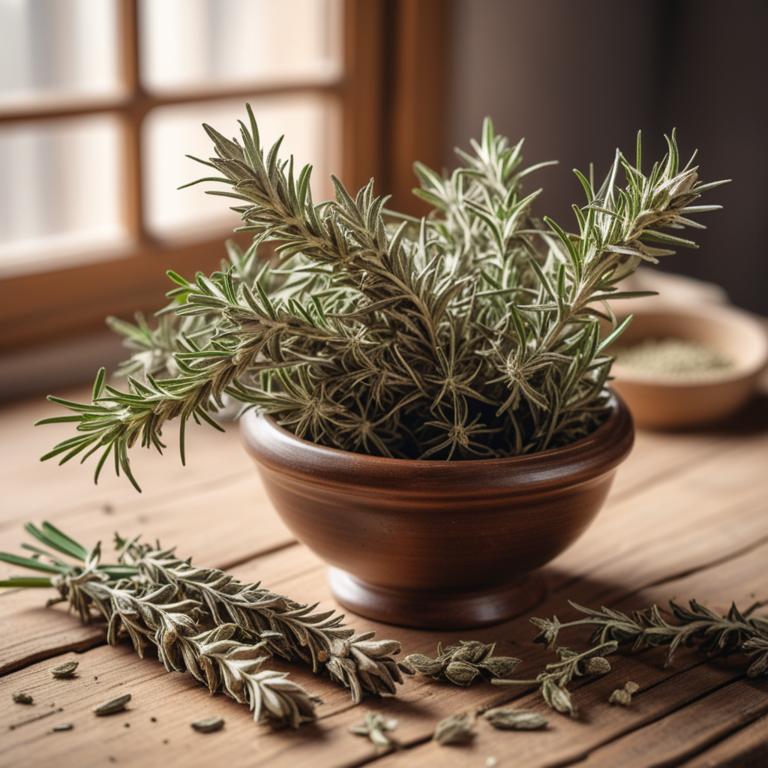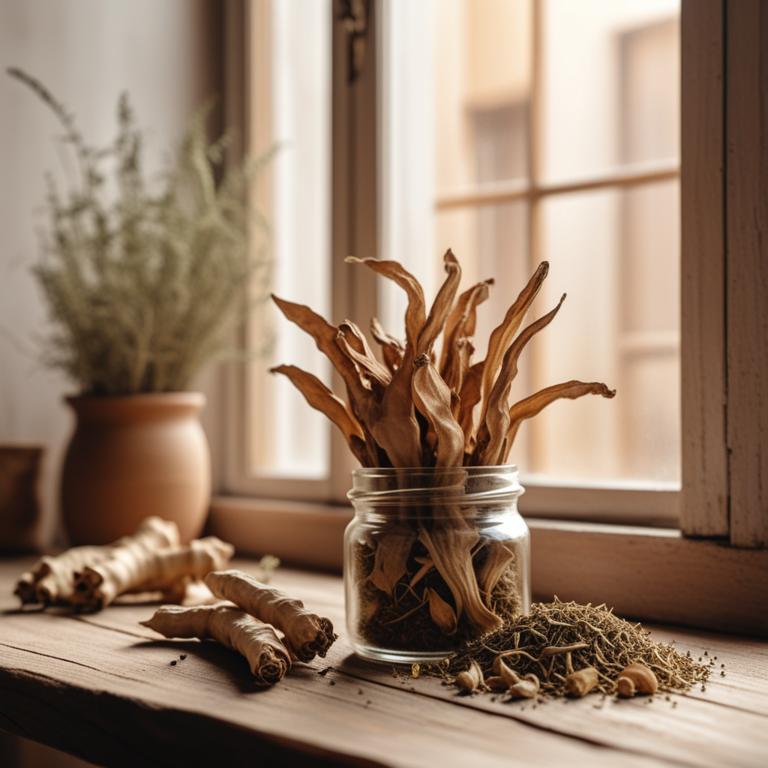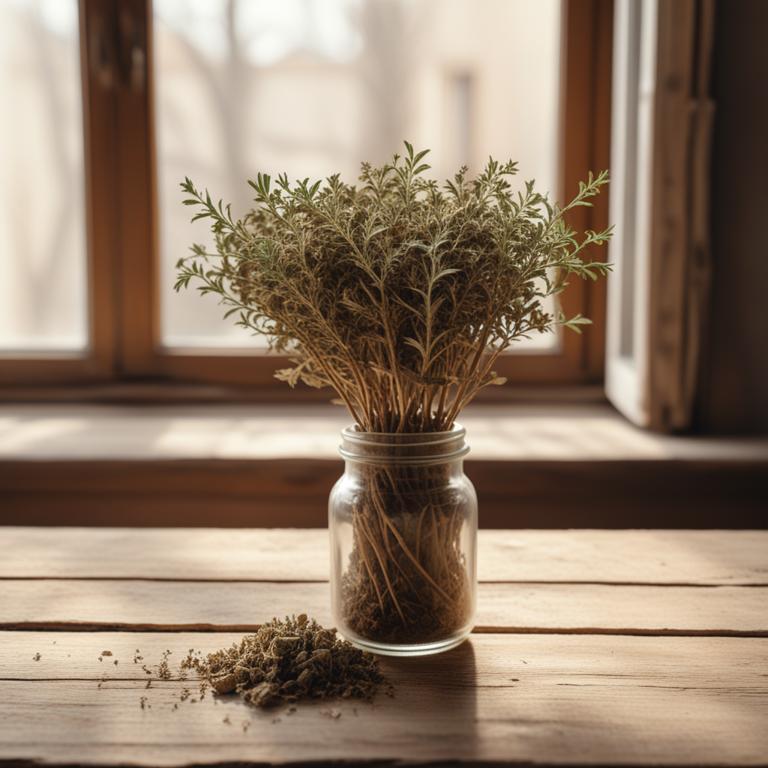Updated: Dec 1, 2024
Runny Nose Causes and Herbal Preparations: A Comprehensive Guide
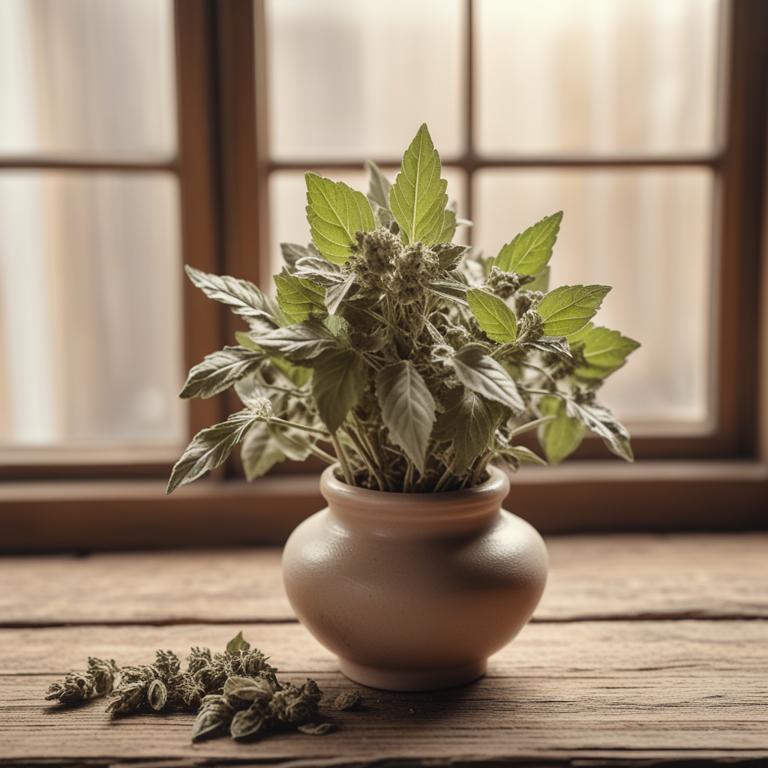
Do you know what it's like to have a runny nose?.
It's like your body's way of saying, "Hey, something's not right in here!". And it's not just annoying, it can affect your life in big ways. You can't stop sniffling, and it gets in the way of your daily activities. But what causes this pesky runny nose?. Well, it can be due to allergies, colds, or even sinus infections. Sometimes, it's just our body's way of dealing with the world around us. Now, let's talk about the good stuff – herbal remedies!. There are some amazing herbs out there that can help soothe your runny nose.
One of them is peppermint, which has natural decongestant properties that can help clear your sinuses. You can make a tea by steeping peppermint leaves in hot water, or even add it to your favorite hot chocolate. Another herb that comes to mind is eucalyptus, which has a cooling effect on the nasal passages. You can add eucalyptus oil to your diffuser or inhale it directly from a cloth to get some relief. Then there's ginger, which has anti-inflammatory properties that can help reduce swelling in the nasal passages. You can make a tea by steeping ginger roots in hot water, or even add it to your favorite smoothie. These herbal remedies can be a game-changer for people who suffer from runny noses. They're natural, easy to use, and can provide quick relief from the symptoms.
So, the next time your nose starts running, try reaching for one of these herbs and see if it makes a difference.
Table of Contents
What are the causes of runny nose?
The main causes of runny nose are several, and they all have different reasons behind them.
Allergies are one major cause - when your body reacts to something in the air, like pollen or dust, it releases histamine, a chemical that makes mucus build up in your nose and sinuses, leading to a runny nose. A cold is another common cause, which is a viral infection that affects your upper respiratory system, causing your nose to produce excess mucus.
The flu is similar, but it's a more serious and widespread viral infection that can cause a runny nose, as well as fever, cough, and body aches. Hay fever is a specific type of allergy that affects people who are sensitive to pollen from trees, grasses, and weeds, and it can cause a runny nose, especially during peak pollen seasons.
Lastly, a sinus infection is a bacterial or fungal infection that affects the sinuses, the small air-filled cavities in your face, and can cause a runny nose, as well as facial pain and pressure, and difficulty breathing.
What benefits can be derived from using herbs for runny nose?
Using herbs for a runny nose can be really helpful.
They can reduce the amount of mucus you produce, making it easier to breathe. Some herbs have natural antihistamine properties, which can help ease congestion and sinus pressure. They can also help to dry up excess mucus, making it less likely to drip down your nose.
Additionally, certain herbs have anti-inflammatory properties, which can help to reduce swelling in the nasal passages and sinuses. This can make it easier to breathe and feel more comfortable when you have a runny nose. Some herbs can also help to soothe and calm the nasal passages, making it feel less irritated and sore.
By using herbs, you can find relief from a runny nose and get back to your normal activities.
What are the main herbal treatments for runny nose?

If you're dealing with a runny nose, there are some amazing herbs that can help you breathe easy.
Eucalyptus globulus, for example, has natural decongestant properties that help clear out mucus and open up your airways. This makes it a popular ingredient in cold medicines and inhalers. Echinacea purpurea is another herb that's great for fighting off infections that can cause a runny nose. It boosts your immune system, so your body can fight off the bad guys and recover faster.
Ginger, or Zingiber officinale, is also a superstar when it comes to soothing a sore throat and calming a runny nose. Its anti-inflammatory properties help reduce swelling and ease congestion. Thymus vulgaris, also known as thyme, has antibacterial properties that can help kill off infections and prevent them from spreading. This makes it a great addition to soups and teas when you're feeling under the weather. Finally, Rosmarinus officinalis, or rosemary, has natural expectorant properties that help loosen and clear out mucus.
All of these herbs can be used in different ways, such as making tea, taking supplements, or using essential oils, to help you feel better when you have a runny nose.
What are the most frequently used herbal remedies for runny nose?
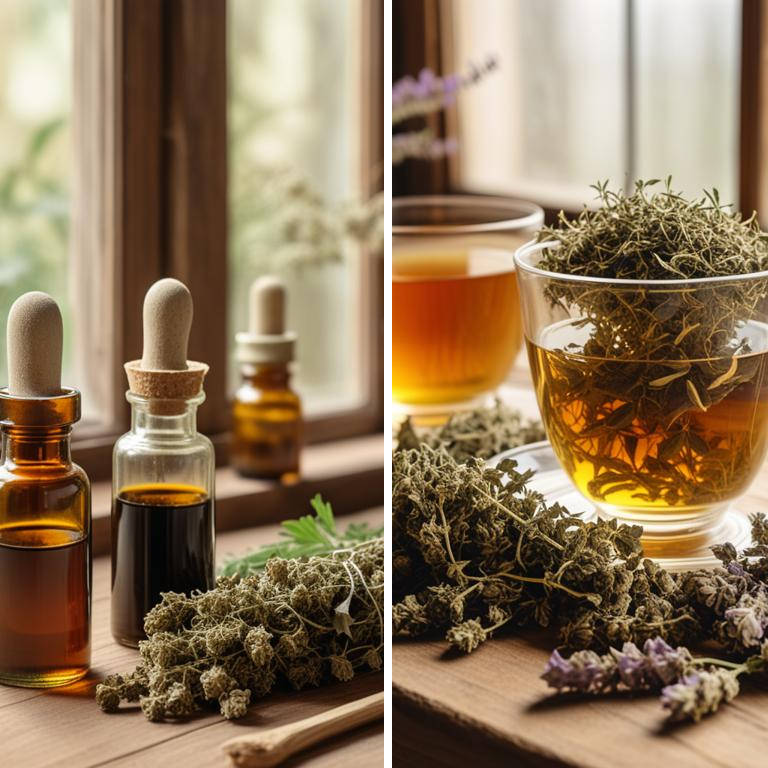
A runny nose can be a real nuisance.
Herbal preparations can be a great way to help soothe and calm it down. Let's take a look at some of these preparations and see why they're good for the job. Gargle Tincture is a strong liquid solution made from herbs like eucalyptus or peppermint. When you gargle with it, the active ingredients can help clear out the nasal passages and calm down the tissues, reducing congestion and runny nose. Decoction is another way to use herbs like ginger or elderberry to help ease a runny nose. These herbs are often simmered in water to release their active compounds, which can then be taken as a drink to help reduce inflammation and ease congestion.
A Salve is a topical cream or ointment made from herbs like calendula or plantain. When applied to the skin around your nose, it can help calm down the tissues and reduce inflammation, which can help alleviate a runny nose. Cold Tea is a soothing drink made by steeping herbs like chamomile or lavender in hot water. Drinking it can help calm down your body and reduce inflammation, which can help ease a runny nose. Infusion is similar to tea, but often made with delicate herbs like elderflower or yarrow. Steeping these herbs in hot water can release their active compounds, which can then be taken as a drink to help reduce congestion and ease a runny nose.
These herbal preparations work in different ways, but they all have one thing in common: they can help soothe and calm your body to alleviate a runny nose.
Additional Resources:
Which herbs can exacerbate a runny nose and should be avoided?
If you have a runny nose, it's best to avoid Hyptis suaveolens, also known as sweet lemongrass, because it can make congestion worse.
Foeniculum vulgare, or fennel, can also be a problem as it can increase mucus production, leading to a runnier nose. Mentha x piperita, peppermint, is another herb to be cautious with, as its strong scent can irritate your nostrils and make congestion worse.
Similarly, Lavandula angustifolia, or English lavender, can be too strong for a runny nose, as its fragrance can cause further irritation. Salvia officinalis, or sage, is another herb to be careful with, as it can dry out your nasal passages, which might not be what you need when you have a runny nose.
When you have a runny nose, it's best to stick to gentle, soothing herbs that won't make things worse.
FAQ
Are there any specific herbs that can prevent runny nose?
Some herbs like eucalyptus and peppermint have natural decongestant properties that can help relieve a runny nose.
Eucalyptus oil can be inhaled to ease congestion, while peppermint tea can help soothe the nasal passages.
These herbs work by opening up airways and reducing inflammation, which can help alleviate runny nose symptoms.
Is it safe to use herbal remedies for runny nose during pregnancy?
If you're pregnant and have a runny nose, you might be tempted to try herbal remedies.
However, it's best to be cautious. Some herbs can affect your pregnancy, so it's essential to know what you're using.
Look for information about each herb and its safety during pregnancy, and choose remedies that are specifically labeled as safe for pregnant women.
Are there any herbs that can reduce the frequency of runny nose?
Eucalyptus is often used to help ease congestion and runny nose.
Its decongesting properties can help open up airways, reducing the frequency of runny nose.
Ginger is also believed to have anti-inflammatory properties that can help soothe a sore throat and ease congestion, making it easier to breathe.
Can i combine different herbal remedies for runny nose?
You can combine different herbal remedies for a runny nose, but use them in moderation.
For example, you can try mixing peppermint for congestion relief with eucalyptus for its decongestant properties.
However, be aware that some herbs can interact with each other, so monitor your body's response and adjust accordingly.
Related Articles
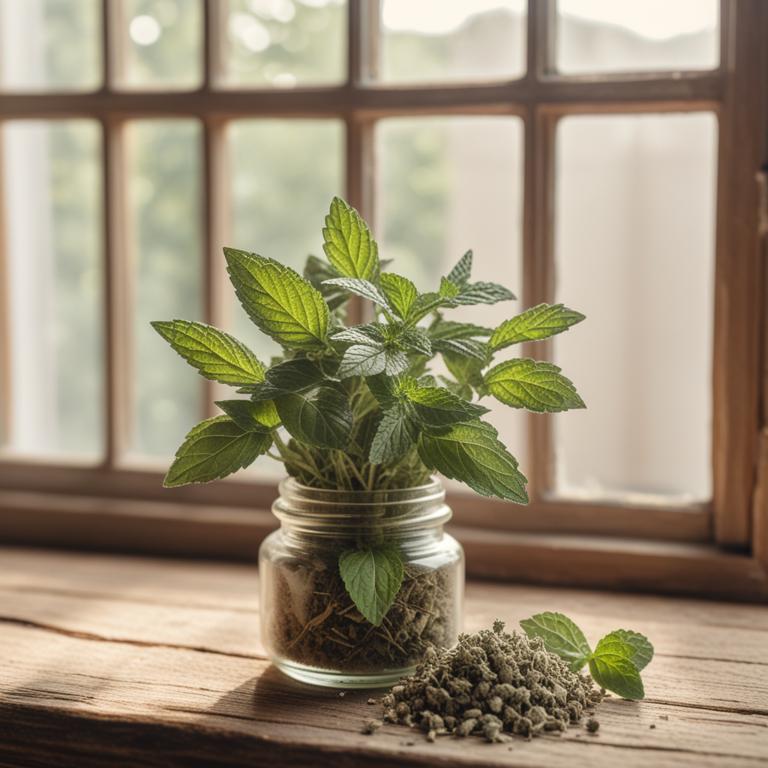
Laryngitis: Causes, Symptoms, and Herbal Preparations for Relief
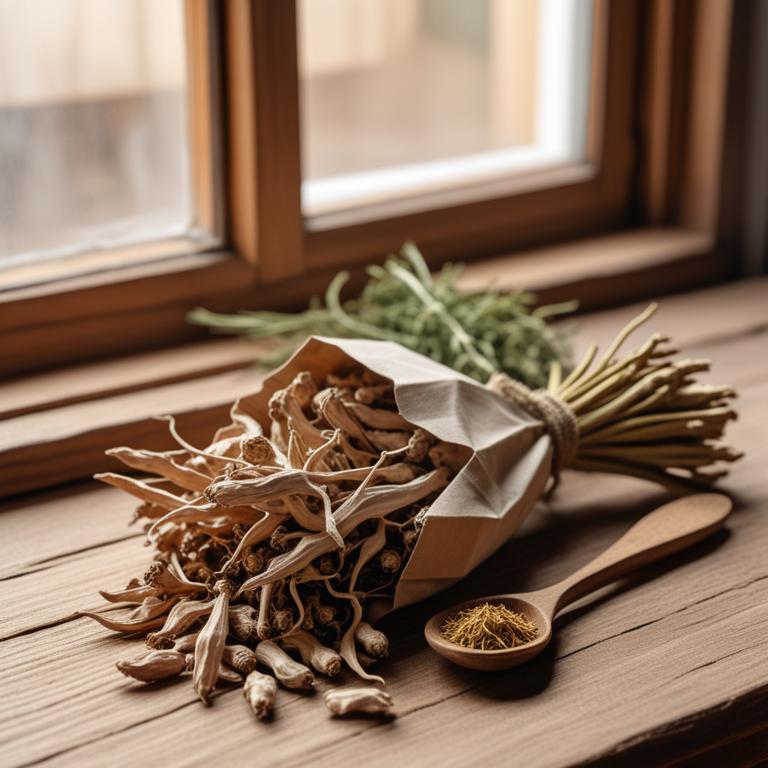
Causes, Herbal Remedies, and Medicinal Preparations for Nasal Congestion

Chest Congestion: Understanding the Causes and Herbal Solutions

Ear Blockage: Exploring Medicinal Herbs and Natural Remedies
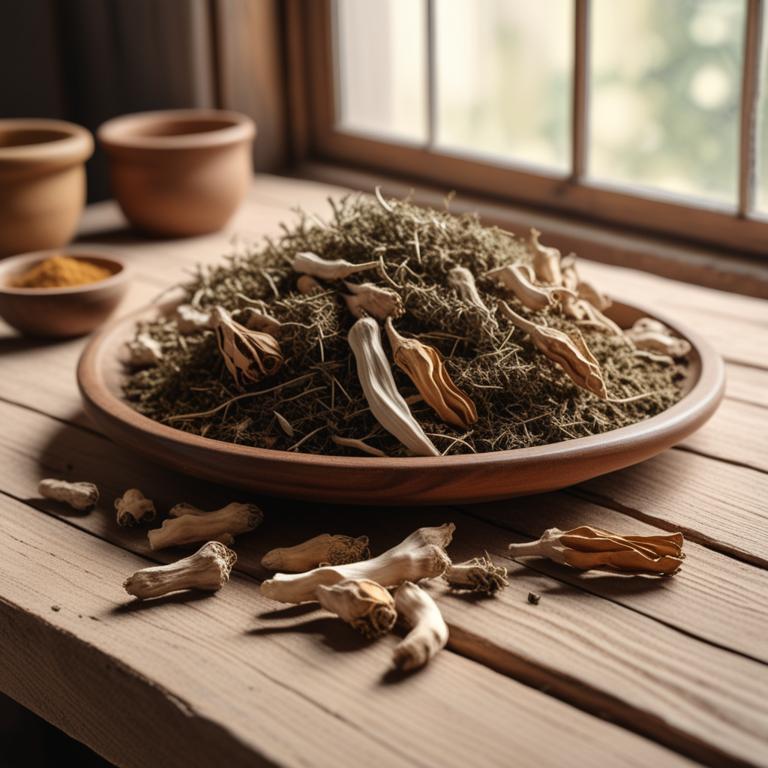
Natural Post Nasal Drip Relief with Medicinal Herbs and Herbal Preparations




